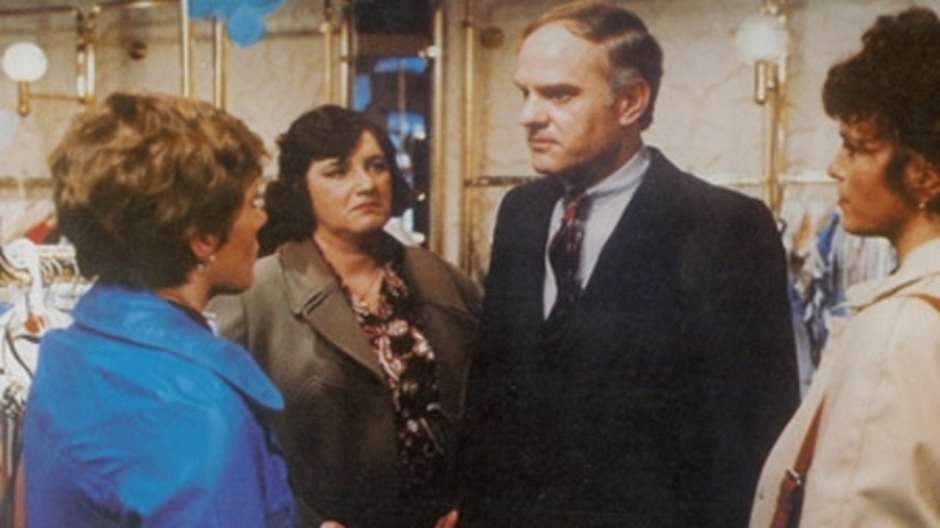A major arthouse talking point back in 1982 - since quieted by falling out of wider circulation - Marleen Gorris's feminist parable A Question of Silence absolutely merits rediscovery now that it's been uploaded to YouTube by the good folks at Solidarity Cinema. Three very different women - a meek housewife (Edda Barends), a garrulous café owner (Nelly Frijda) and a bright secretary (Henriëtte Tol) - are arrested around Amsterdam on suspicion of murdering a shopkeeper; they surrender without protest, on the assumption whatever's waiting for them in custody will be easier than what they've had to endure day to day. It's down to a female psychologist (Cox Habbema), notably more empathetic than those male colleagues writing off these women as mad, to interview them, their loved ones and their colleagues, and thereby understand a) where they were coming from and b) whether this most violent of crimes was premeditated, and not just the result of a sudden snap. As whodunnits go, it's an open-and-shut case, with no other suspects in the frame; what Gorris understood was that such cases are more usefully approached as whydunnits, taking the extra time to find out just what drives a woman to breaking point.
That inquiry is presented within the framework of a highly constructed narrative, designed to point the viewer in a certain direction - or at least to nudge him or her towards further consideration. Two elements keep A Question of Silence from becoming unduly programmatic. Firstly, it's shot almost like a TV documentary of the period, following these women through airless front rooms, nondescript shopping malls and drab office spaces in which they invariably find themselves pushed into the background, then into a system where (up until the trial, when they face the condescensions of the judiciary) they at least have the advantage of being free from the micro-aggressions of the opposite sex. Secondly, the women's testimony is offered up in the form of jabbing fragments that require the viewer to do much of the work, figuring out what brought these three strangers together to kill a fourth. Very strong writing and playing personalises and differentiates these women: Frijda's proprietress laughs off the flak she gets, but Barends' homemaker internalises it, and Tol's eternally overlooked PA apparently feels so liberated by the act of murder that she turns a trick on the way home, which can't help but seem a decidedly Dutch response.
Gorris also shows us how these women respond to the psychologist's questioning in markedly different ways. "I could murder someone for some chocolate," joshes the café owner; the housewife, rendered all but mute by long afternoons with no-one to talk to, is reduced to drawing clues for her interrogator. Frans Bromet's camera is deeply alert to the body language that might well be ignored by more restless and brusque investigators: a lot of this story's clues are hidden in plain sight. Some of its details are inseparably 1982, like the Casio score, credited to Lodewijk de Boer and Martijn Hasebos but all too clearly the work of John Shuttleworth. And in the wake of subsequent provocations from Catherine Breillat and the Baise-Moi dames, the murder scene plays as a little quaint when we eventually alight upon it. (Far more unnerving is the supervising mortician's assessment of the corpse: "The genitals were almost unrecognisable as such." Now there's a line to make the gents in any audience stop manspreading.) Watching it in 2020, I could well imagine some bright spark updating it as Steve McQueen did Widows - but it remains unusually potent as is: a film to make women think, and to make men think twice.
A Question of Silence is now streaming on YouTube, and can be found here.

No comments:
Post a Comment